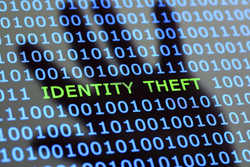Protecting the password on your email account is one of the most important factors in preventing the unauthorized use of your personal information to create fraud or other crimes.
Many online sites and services have a “forgot password” option that sends a password reset link to your email address. Rice Information Security Officer Marc Scarborough said that if someone can access your email account, they can use this option to access those accounts to change delivery addresses and make transactions. However, they will need the password on your email account to get the link that’s sent there to generate the other steps.
 Scarborough suggested using a short sentence or song lyric as a password because it’s easier to remember but also complex. He also recommended taking advantage of two-factor authentication, which requires both a password and a second piece of information to access the account. This option is becoming more widespread among email providers, he said.
Scarborough suggested using a short sentence or song lyric as a password because it’s easier to remember but also complex. He also recommended taking advantage of two-factor authentication, which requires both a password and a second piece of information to access the account. This option is becoming more widespread among email providers, he said.
Scarborough shared these and other personal security tips with staff and retirees during an Oct. 11 presentation in conjunction with National Cybersecurity Awareness Month.
He offered these five steps for protecting personal identity:
1. Monitor your credit reports.
“You are entitled to one free annual credit report from Equifax, Transunion and Experian,” he said. He suggested requesting a free credit report every four months by rotating among those three services. Go to www.annualcreditreport.com
2. Set up fraud alerts on your credit report.
“Once you put a fraud-alert note on your report, if someone asks for a credit report under your name, the service provider is supposed to take extra steps to verify your identity,” Scarborough said. The fraud alert should be renewed every 90 days. Go to www.alerts.equifax.com/AutoFraud_Online/jsp/fraudAlert.jsp.
3. Opt out of credit offers.
“This will reduce the credit offers you receive by mail and phone,” he said. The reduction in junk mail will also lower the risk that someone will be able to retrieve your discarded credit card offers from the dumpster. The opt-out offer is good for five years. Go to www.optoutprescreen.com.
4. Establish bank alerts.
“This is an early warning system from your bank that your balance is really low or a major purchase has been made – something that could indicate someone else is using your account,” Scarborough said. These alerts can be set up through your bank’s website. Scarborough recommended reviewing the options every six months.
5. Review monthly bank statements.
“Checking your bank statement every month is one of the most effective ways to find fraudulent activity,” he said, noting that you should look for payments to services you don’t use or recurring charges for something you don’t recognize.
For more tips on information security, visit http://infosecurity.rice.edu/.


Leave a Reply